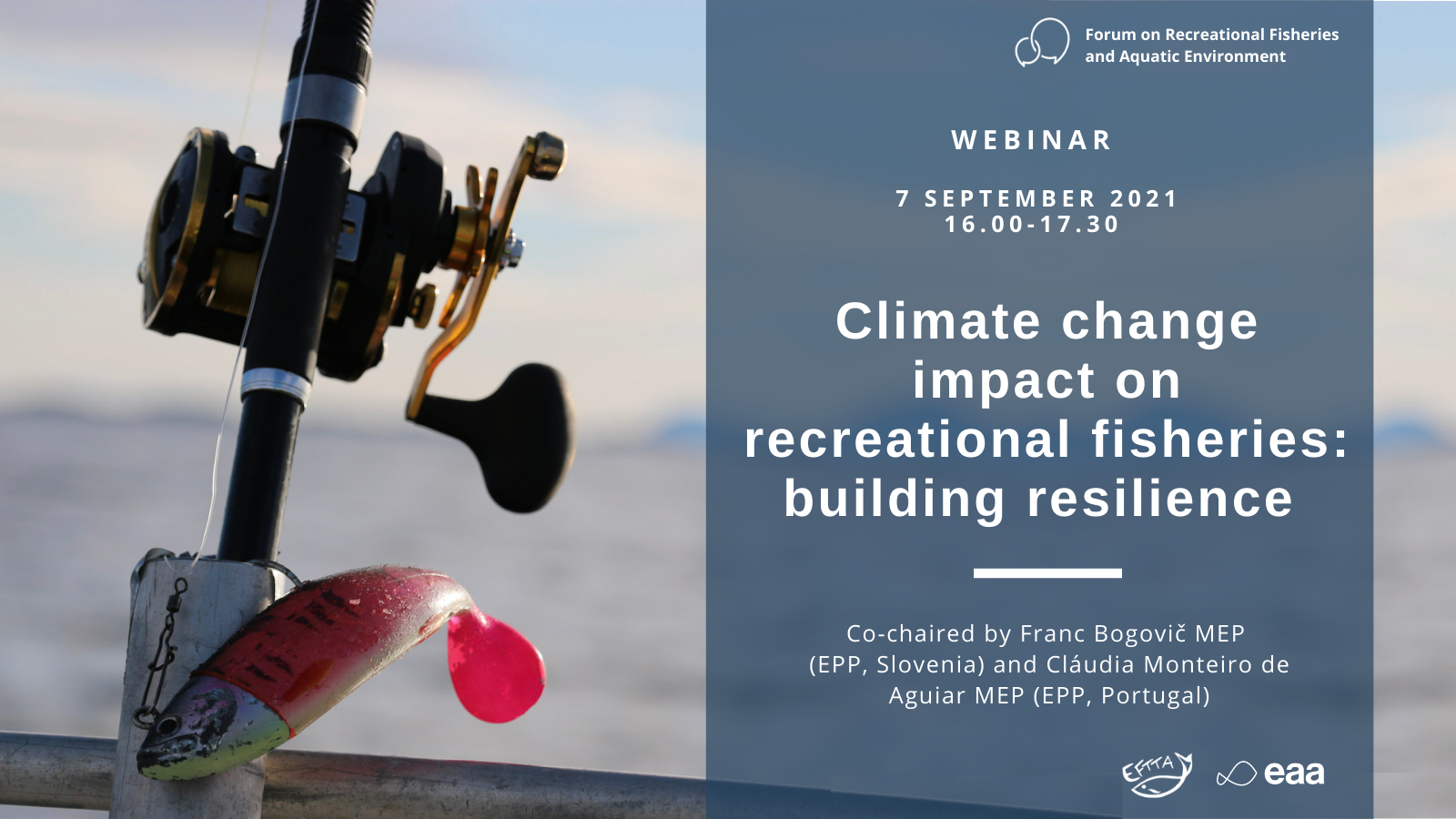The next event of the European Parliament Forum on Recreational Fisheries and Aquatic Environment will take place on 7 September. The event will look at the impact of climate change on seas and rivers, leading to shifts in fish stocks. It will also explore the impacts on recreational fisheries and how to build resilience in coastal, rural and remote communities.
Webinar
Climate change impact on recreational fisheries: building resilience
7 September 2021
MEP Franc Bogovič and
MEP Cláudia Monteiro De Aguiar will co-chair the webinar “Climate change impact on recreational fisheries: building resilience” organised by the European Parliament Forum on Recreational Fisheries and Aquatic Environment, with the support of the European Anglers Alliance (EAA) and the European Fishing Tackle Trade Association (EFTTA).
The webinar will take place on 7 September 2021, from 16:00 to 17:30.

Please register here.
Climate change is affecting the marine and coastal environment through rising sea temperatures, rising sea levels, extreme weather events, deoxygenation, acidification and disruption to natural ocean processes.
The ability of ecosystems to cope with these changes is decreasing. The impact of climate change on fish stocks and commercial fishing is being progressively taken into account by the European Commission in its fisheries management plans as it is well established that
climate change and poor fisheries management will mutually strengthen their adverse effects. However, less recognition is being given to the impact on recreational fisheries. The sector is estimated to generate €20 billion of economic activity across the EU, and its marine segment supports more than 100,000 jobs. Research into the impacts of climate change on recreational fisheries, how to adapt to climate change and
how to build resilience against the impacts of climate change needs to be prioritised.
Some communities rely heavily on healthy fish stocks, including in some specific or unique locations.
Shifts in the distribution of stocks are problematic to commercial and recreational fishing alike, sometimes threatening the livelihood of communities relying on these fishing activities, both by the sea and along rivers. Those communities need to be supported in their efforts to mitigate the negative effects of climate change and embrace new opportunities, as they prepare to adapt to new realities. For example, tuna fishing can now take place in Norway, Sweden and Denmark with a huge potential for angling tourism. The economic resilience of those communities thus lies on their ability to take adequate measures to adapt to climate change and may require more flexibility or anticipation in the management of fish stocks. The webinar will discuss
how the European Union can support the coastal, rural and remote communities, for example by investing more in terms of preparing for the impacts of climate change on marine and freshwater recreational fisheries
through funding and research, to ensure that recreational fishing is prepared for the future.
The meeting will be an opportunity to
discuss the impacts of climate change on recreational angling and to discuss some of the
possibilities to build resilience in those affected communities, such as with the development of angling tourism. The meeting will also be an opportunity to highlight the impact of climate change
ahead of the UNFCCC COP26 in Glasgow in November.
More information about the event can be found
here.